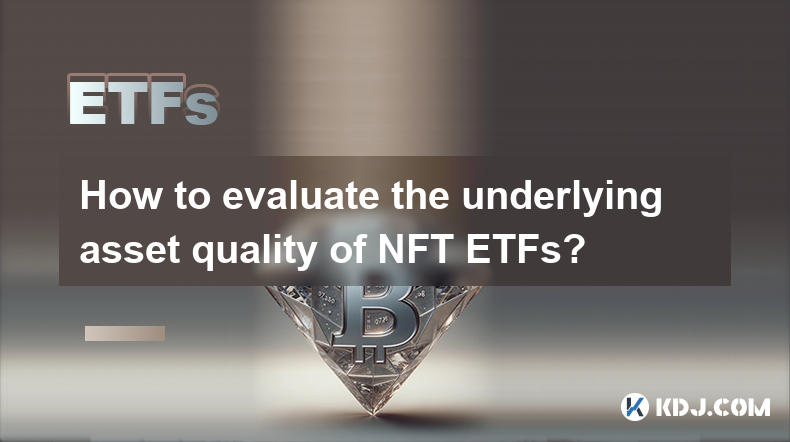-
 Bitcoin
Bitcoin $94,680.6256
1.32% -
 Ethereum
Ethereum $1,796.9641
1.62% -
 Tether USDt
Tether USDt $1.0004
0.00% -
 XRP
XRP $2.1920
0.28% -
 BNB
BNB $601.8534
-0.28% -
 Solana
Solana $151.4492
-0.40% -
 USDC
USDC $1.0000
-0.01% -
 Dogecoin
Dogecoin $0.1865
2.99% -
 Cardano
Cardano $0.7206
1.22% -
 TRON
TRON $0.2437
-0.13% -
 Sui
Sui $3.6345
7.66% -
 Chainlink
Chainlink $15.1032
0.63% -
 Avalanche
Avalanche $22.6059
2.27% -
 Stellar
Stellar $0.2905
5.29% -
 Shiba Inu
Shiba Inu $0.0...01467
4.75% -
 UNUS SED LEO
UNUS SED LEO $9.0806
-1.54% -
 Hedera
Hedera $0.1959
5.05% -
 Toncoin
Toncoin $3.2430
1.37% -
 Bitcoin Cash
Bitcoin Cash $373.6109
5.29% -
 Polkadot
Polkadot $4.2853
0.43% -
 Litecoin
Litecoin $87.5587
4.46% -
 Hyperliquid
Hyperliquid $18.3331
-2.05% -
 Dai
Dai $0.9999
-0.02% -
 Bitget Token
Bitget Token $4.4468
0.28% -
 Ethena USDe
Ethena USDe $0.9996
0.00% -
 Pi
Pi $0.6528
-0.26% -
 Monero
Monero $228.1370
-0.60% -
 Pepe
Pepe $0.0...09510
9.12% -
 Uniswap
Uniswap $5.9326
2.47% -
 Aptos
Aptos $5.5766
2.14%
How to evaluate the underlying asset quality of NFT ETFs?
Evaluating the underlying asset quality of NFT ETFs involves examining the provenance, market value, liquidity, and authenticity of the NFTs held, as well as the track record and expertise of the ETF manager.
Jan 09, 2025 at 10:52 pm

Key Points:
- Understand the concept of NFT ETFs and their underlying assets.
- Analyze the provenance and authenticity of the NFTs held by the ETF.
- Evaluate the market value and liquidity of the underlying NFTs.
- Assess the track record and expertise of the ETF manager.
- Consider the regulatory framework governing the NFT market.
- Monitor the overall NFT market conditions and trends.
How to Evaluate the Underlying Asset Quality of NFT ETFs
1. Understand NFT ETFs and Their Underlying Assets
NFT ETFs are investment vehicles that provide exposure to a basket of non-fungible tokens (NFTs). These ETFs typically hold a diversified portfolio of NFTs, offering investors a diversified way to gain exposure to the NFT market. The underlying assets of NFT ETFs can vary widely, including digital art, collectibles, gaming items, and even real-world assets tokenized as NFTs.
2. Analyze the Provenance and Authenticity of the NFTs
The provenance of an NFT refers to its history of ownership and authenticity. When evaluating the underlying asset quality of an NFT ETF, it's crucial to assess the provenance of the NFTs in the ETF's portfolio. This includes verifying the creator of each NFT, the chain of ownership, and any pertinent documentation or history associated with the NFTs. Reputable NFT marketplaces and platforms typically provide detailed provenance information for NFTs, and ETF managers should exercise due diligence in sourcing and verifying the authenticity of the NFTs they hold.
3. Evaluate the Market Value and Liquidity of the Underlying NFTs
The market value of an NFT represents its current perceived worth in the market. While NFT prices can fluctuate significantly, evaluating the market value of the underlying NFTs in an NFT ETF's portfolio is essential to gauge their potential financial performance. Similarly, the liquidity of the NFTs held by the ETF should be considered. Liquidity refers to the ease with which an NFT can be bought or sold in the market. High liquidity increases the flexibility for ETF investors to enter or exit their positions.
4. Assess the Track Record and Expertise of the ETF Manager
The track record and expertise of the ETF manager are critical factors to consider. An experienced ETF manager with a proven track record in managing similar investment vehicles, especially in the digital asset space, can provide a level of credibility and competence. The manager's understanding of the NFT market, including trends, valuations, and regulatory nuances, is also highly relevant. A reputable manager with a strong team background is likely to make sound investment decisions and provide transparent and timely information to investors.
5. Consider the Regulatory Framework Governing the NFT Market
The regulatory landscape surrounding NFTs is evolving rapidly, with various government agencies and jurisdictions taking different approaches. Some jurisdictions have established specific regulations for NFTs, while others have yet to provide clear guidelines. When evaluating the underlying asset quality of an NFT ETF, considering the applicable regulatory framework is important. This includes analyzing potential regulatory risks and how they could impact the value and liquidity of the underlying NFTs.
6. Monitor the Overall NFT Market Conditions and Trends
The broader NFT market conditions and trends significantly impact the performance of NFT ETFs. Monitoring market sentiment, industry developments, and NFT sales volumes can help investors make informed decisions. Tracking the popularity and adoption of NFTs, as well as the performance of individual NFT projects, provides valuable insights into the potential future value of the underlying assets in an NFT ETF.
FAQs
1. What are the benefits of investing in NFT ETFs over individual NFTs?
NFT ETFs offer several benefits over investing in individual NFTs. They provide diversification and reduce risk by investing in a basket of NFTs rather than a single asset. NFTs are also highly illiquid, making them difficult to buy or sell quickly. ETF structures address this issue by providing a more liquid vehicle for investors.
2. What are the risks associated with investing in NFT ETFs?
The value of NFT ETFs is directly tied to the underlying NFTs, which can be highly speculative and volatile. Factors such as shifts in market sentiment, changes in the regulatory landscape, and the overall performance of the NFT market can significantly impact ETF returns.
3. How can I assess the suitability of an NFT ETF for my portfolio?
Consider your investment goals, risk tolerance, and the specific characteristics of the ETF. Evaluate the underlying NFTs' provenance, value, liquidity, and management team. Regularly monitor the ETF's performance and the broader NFT market to stay informed and make appropriate adjustments.
Disclaimer:info@kdj.com
The information provided is not trading advice. kdj.com does not assume any responsibility for any investments made based on the information provided in this article. Cryptocurrencies are highly volatile and it is highly recommended that you invest with caution after thorough research!
If you believe that the content used on this website infringes your copyright, please contact us immediately (info@kdj.com) and we will delete it promptly.
- Cardano (ADA) Price Eyes a Massive Bull Run Amid Looming Supply Squeeze
- 2025-04-26 12:05:13
- Is the crypto market chasing noise, or finally ready to reward substance?
- 2025-04-26 12:05:13
- CoinFerenceX, the world's first decentralized Web3 conference, is back in Dubai on April 28, 2025
- 2025-04-26 12:00:26
- Optimism (OP) price prediction 2025-2031: Can OP reach $10?
- 2025-04-26 12:00:26
- Stacks (STX) Price Surges by 16% but Underlying Market Sentiment Suggests a Correction May Be on the Horizon
- 2025-04-26 11:55:13
- Circle firmly denies rumors suggesting it plans to apply for a US banking license
- 2025-04-26 11:55:13
Related knowledge

What role does SEC play in Bitcoin ETF approval?
Feb 25,2025 at 06:48am
Key Points:SEC's Role in Bitcoin ETF Approval ProcessHistorical Efforts to Establish a Bitcoin ETFSEC's Criteria for Bitcoin ETF ApprovalPotential Impact of a Bitcoin ETF on the Cryptocurrency MarketTimeline and Outlook for Bitcoin ETF ApprovalArticle:SEC Play in Bitcoin ETF ApprovalThe United States Securities and Exchange Commission (SEC) plays a crit...

Who is eligible to issue Bitcoin ETFs?
Feb 25,2025 at 11:13am
Key Points:Only regulated financial institutions with the necessary expertise and infrastructure are eligible to issue Bitcoin ETFs.The Securities and Exchange Commission (SEC) has not yet approved any spot Bitcoin ETFs, but has approved several futures-based ETFs.Applicants must meet stringent requirements, including having a strong track record and su...

What impact does Bitcoin ETF have on the market?
Feb 25,2025 at 11:37am
Key Points:Introduction to Bitcoin ETFs and their role in the cryptocurrency marketHistorical development and performance of Bitcoin ETFsPotential benefits of Bitcoin ETFs for investors and the marketRisks and limitations associated with Bitcoin ETFsRegulatory considerations and their impact on Bitcoin ETFsArticle:Introduction to Bitcoin ETFsBitcoin exc...

Which investors are Bitcoin ETFs suitable for?
Feb 27,2025 at 04:01pm
Key Points:Understanding Bitcoin ETFsBenefits of Bitcoin ETFsSuitability of Bitcoin ETFs for Different InvestorsAssessing Risk Tolerance and Investment GoalsConsidering Short-Term and Long-Term StrategiesExamining Tax ImplicationsSeeking Professional AdviceUnderstanding Bitcoin ETFsBitcoin exchange-traded funds (ETFs) are investment vehicles that track ...

What is the administrative expenses of Bitcoin ETFs?
Feb 26,2025 at 12:24am
Key Points:Administrative expenses are a crucial factor to consider when evaluating Bitcoin ETFs.These expenses can significantly impact the performance of the fund and ultimately the investor's returns.Understanding the various components of administrative expenses is essential for informed decision-making.Comparing administrative expenses across diffe...

What are the fees for purchasing Bitcoin ETFs?
Feb 27,2025 at 07:13pm
Key Points:Bitcoin exchange-traded funds (ETFs) are a cost-effective and regulated way to gain exposure to Bitcoin.Fees associated with Bitcoin ETF purchases vary depending on the platform, trading volume, and account type.It is essential to evaluate fee structures carefully to optimize investment returns.Fees Associated with Purchasing Bitcoin ETFs1. B...

What role does SEC play in Bitcoin ETF approval?
Feb 25,2025 at 06:48am
Key Points:SEC's Role in Bitcoin ETF Approval ProcessHistorical Efforts to Establish a Bitcoin ETFSEC's Criteria for Bitcoin ETF ApprovalPotential Impact of a Bitcoin ETF on the Cryptocurrency MarketTimeline and Outlook for Bitcoin ETF ApprovalArticle:SEC Play in Bitcoin ETF ApprovalThe United States Securities and Exchange Commission (SEC) plays a crit...

Who is eligible to issue Bitcoin ETFs?
Feb 25,2025 at 11:13am
Key Points:Only regulated financial institutions with the necessary expertise and infrastructure are eligible to issue Bitcoin ETFs.The Securities and Exchange Commission (SEC) has not yet approved any spot Bitcoin ETFs, but has approved several futures-based ETFs.Applicants must meet stringent requirements, including having a strong track record and su...

What impact does Bitcoin ETF have on the market?
Feb 25,2025 at 11:37am
Key Points:Introduction to Bitcoin ETFs and their role in the cryptocurrency marketHistorical development and performance of Bitcoin ETFsPotential benefits of Bitcoin ETFs for investors and the marketRisks and limitations associated with Bitcoin ETFsRegulatory considerations and their impact on Bitcoin ETFsArticle:Introduction to Bitcoin ETFsBitcoin exc...

Which investors are Bitcoin ETFs suitable for?
Feb 27,2025 at 04:01pm
Key Points:Understanding Bitcoin ETFsBenefits of Bitcoin ETFsSuitability of Bitcoin ETFs for Different InvestorsAssessing Risk Tolerance and Investment GoalsConsidering Short-Term and Long-Term StrategiesExamining Tax ImplicationsSeeking Professional AdviceUnderstanding Bitcoin ETFsBitcoin exchange-traded funds (ETFs) are investment vehicles that track ...

What is the administrative expenses of Bitcoin ETFs?
Feb 26,2025 at 12:24am
Key Points:Administrative expenses are a crucial factor to consider when evaluating Bitcoin ETFs.These expenses can significantly impact the performance of the fund and ultimately the investor's returns.Understanding the various components of administrative expenses is essential for informed decision-making.Comparing administrative expenses across diffe...

What are the fees for purchasing Bitcoin ETFs?
Feb 27,2025 at 07:13pm
Key Points:Bitcoin exchange-traded funds (ETFs) are a cost-effective and regulated way to gain exposure to Bitcoin.Fees associated with Bitcoin ETF purchases vary depending on the platform, trading volume, and account type.It is essential to evaluate fee structures carefully to optimize investment returns.Fees Associated with Purchasing Bitcoin ETFs1. B...
See all articles






















![Trading is to follow [Review Video] Gold Bitcoin Crude Oil Orders Make Profits! Trading is to follow [Review Video] Gold Bitcoin Crude Oil Orders Make Profits!](/uploads/2025/04/26/cryptocurrencies-news/videos/trading-follow-review-video-gold-bitcoin-crude-oil-profits/image-1.webp)































































